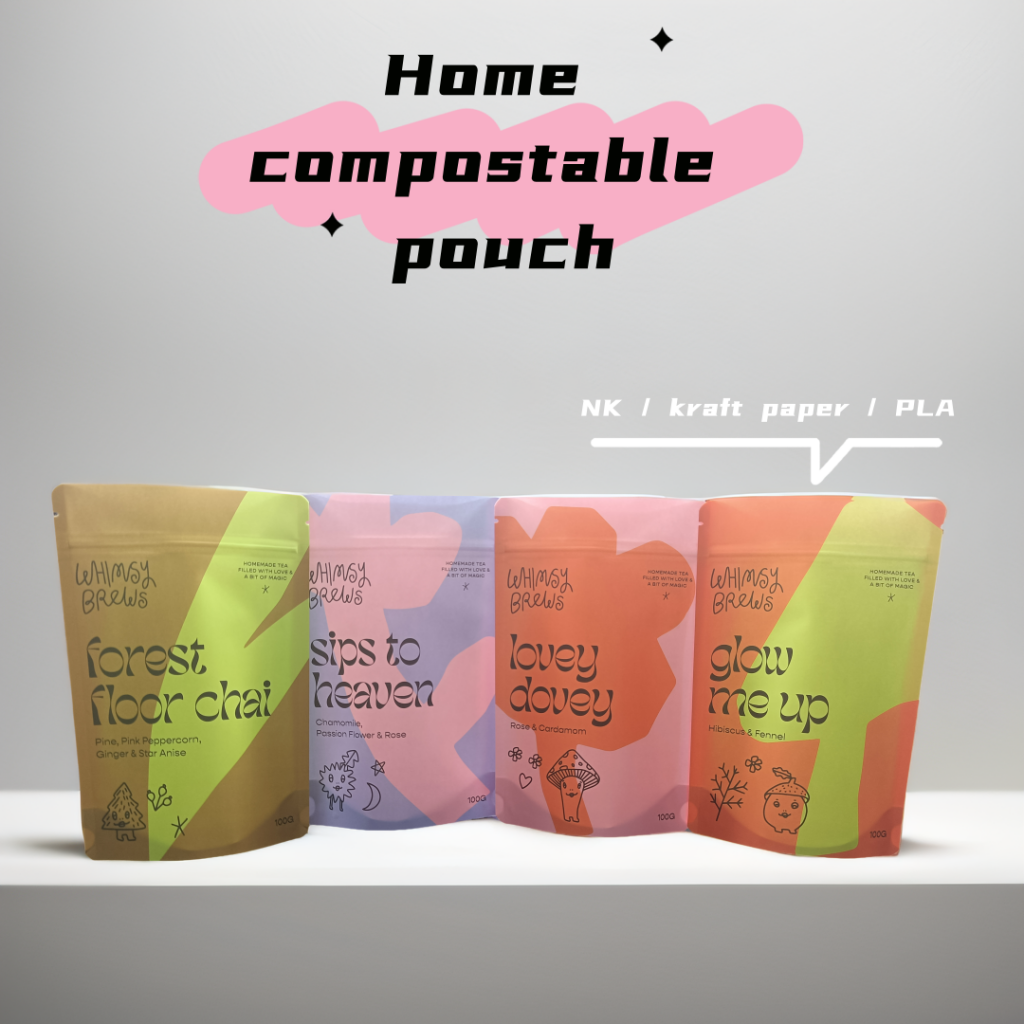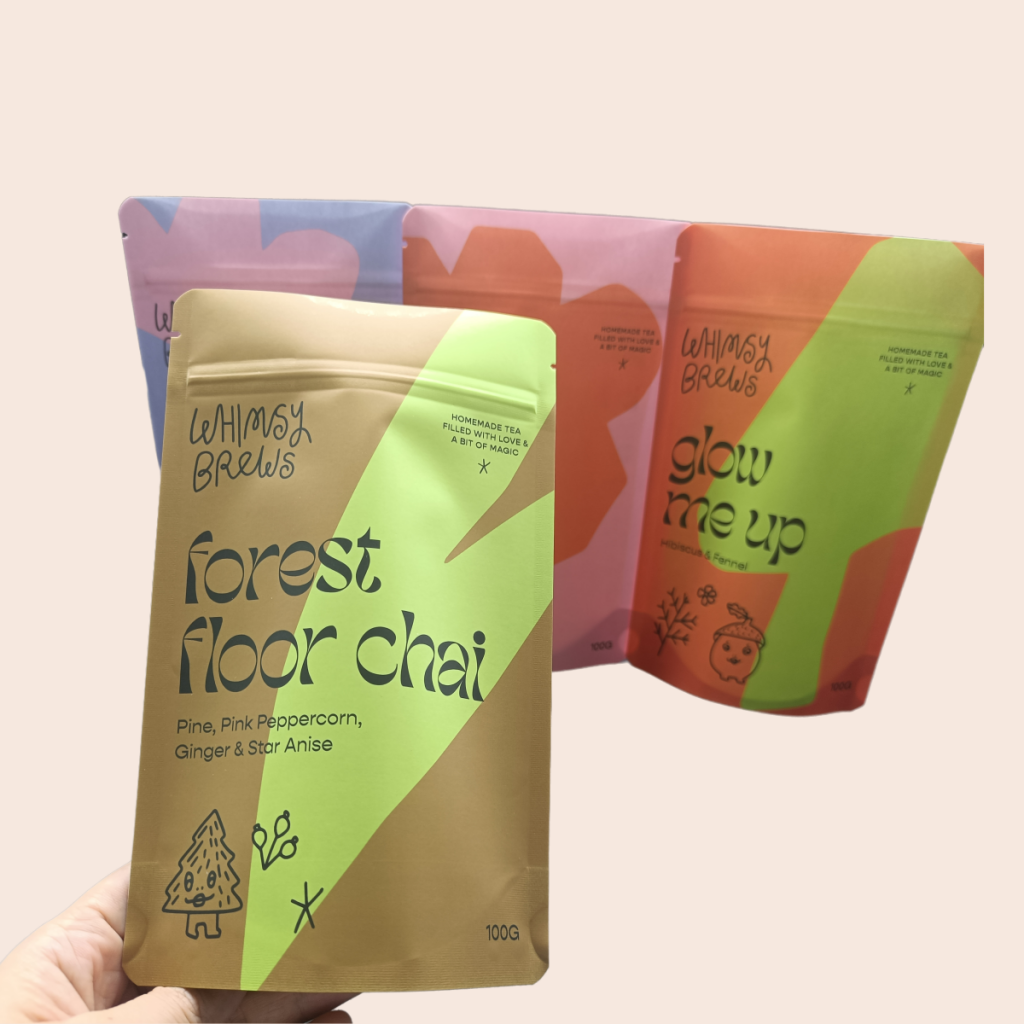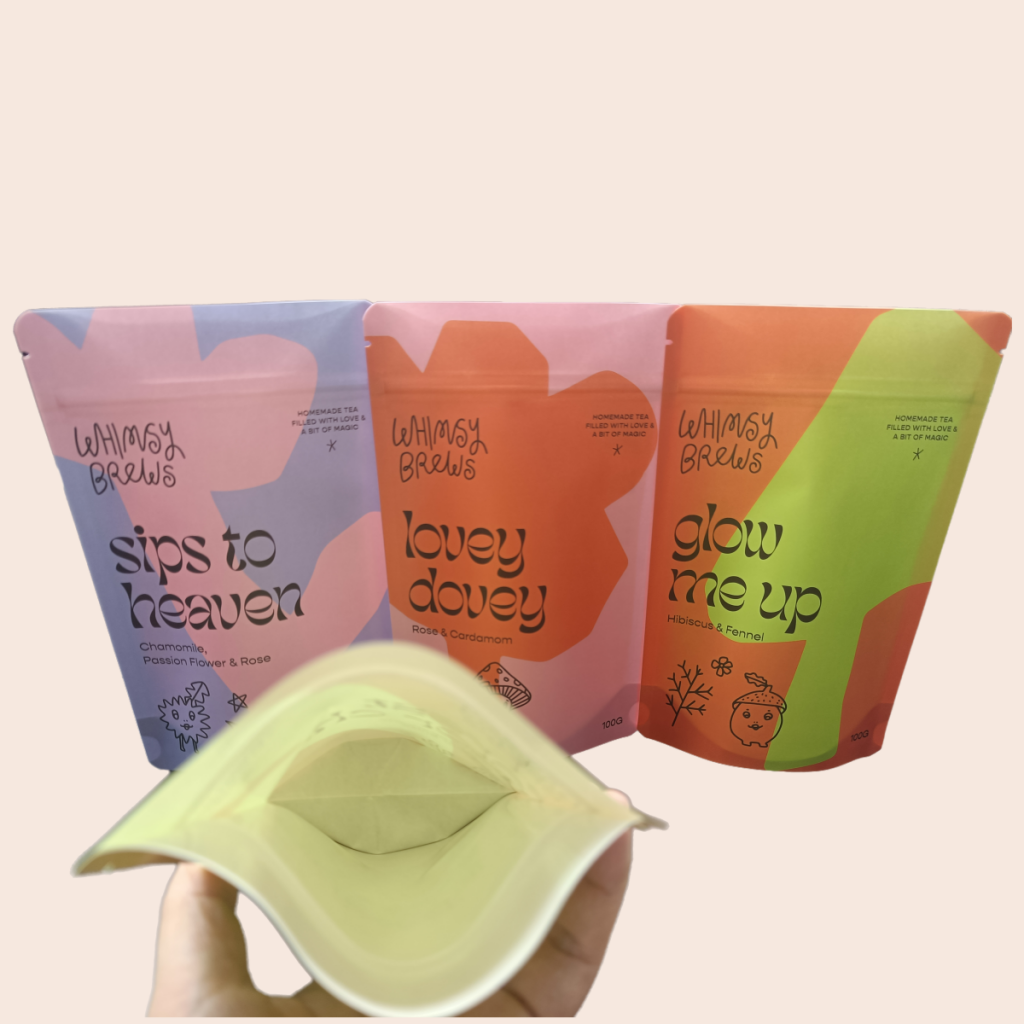Compostable Pouch Packaging: Rewriting the Rules of Sustainable Flexibility
The plastic waste crisis has reached a boiling point, but a quiet revolution is brewing in the flexible packaging sector: compostable pouch packaging is redefining how we store, protect, and dispose of everyday products. No longer confined to niche organic brands, compostable pouch packaging now combines industrial-grade performance with cradle-to-compost circularity. From coffee beans to ready meals, these innovative pouches are challenging the myth that sustainability requires sacrificing functionality. Let’s dissect how compostable pouch packaging bridges ecological responsibility with real-world demands.

Breaking Down the Breakthroughs
At the heart of modern compostable pouch packaging lies a material science arms race. Traditional PLA films, while biodegradable, often crack under the pressure of oily snacks or acidic foods. The new generation tackles this through:
Mycelium-reinforced layers: Ecovative’s mushroom-root networks add tear resistance to compostable food pouches, surviving 5lb impacts—critical for e-commerce nut shipments.
Algae-based oxygen barriers: Algenesis’s Solaplast films achieve 0.8 cc/m²/day OTR in compostable coffee pouches, rivaling aluminum foil’s protective powers.
Self-degrading adhesives: TIPA’s enzyme-triggered glues ensure every layer of compostable resealable pouches breaks down in sync, eliminating microplastic risks.
Pioneers like Grounded Packaging now offer compostable pouch packaging that withstands 12-month shelf life demands for premium coffee brands, debunking the “eco-fragile” stereotype.

The Reclosable Revolution
Compostable resealable pouches are solving the “chip clip conundrum” for sustainable snacking:
Magnetic seaweed strips: Notpla’s reseal system uses dried kelp composites with natural adhesiveness—no plastic zippers required.
Bio-based press-to-close: Aptar’s EarthSpring™ zipper, made from PBAT and corn starch, endures 500+ open/close cycles in compostable food pouches.
Edible seals: Mori’s chitosan-coated edges on eco friendly pouch packaging dissolve in water, turning empty snack bags into plant fertilizer when buried.
These innovations are winning converts beyond eco-warriors: Frito-Lay’s Off the Eaten Path line reported a 23% sales boost after switching to compostable resealable pouches, proving convenience and conscience can coexist.

Coffee’s Circular Future
The $460B coffee industry faces a reckoning—25 billion non-recyclable bags discarded annually. Compostable coffee pouches are percolating change through:
Carbon-negative materials: Coffee Cherry Co.’s bags made from dried fruit husks (usually wasted during processing) sequester 0.3kg CO₂ per pouch.
Aroma-preserving tech: Swiss startup Bloom’s nanoclay-infused compostable coffee pouches maintain freshness 18% longer than multi-layer plastics.
Farm-to-compost traceability: Farmer Direct’s blockchain-enabled QR codes on eco friendly pouch packaging track decomposition progress, rewarding consumers with loyalty points when bags are composted.
Major players are taking note: Keurig Dr Pepper’s 2025 pledge to adopt 100% compostable coffee pouches signals industry-wide transformation.
Beyond the Kitchen: Unexpected Applications
The versatility of compostable pouch packaging is spilling into unconventional markets:
-
Pet care: Open Farm’s dog treats now use compostable food pouches with odor-locking cassava starch liners.
-
Pharma: Vireo Health’s medical cannabis pouches employ UV-blocking, home-compostable films compliant with FDA CFR 21.
-
Fashion: Patagonia’s recycled down jackets ship in eco friendly pouch packaging that decomposes into garden mulch.
The Certification Minefield
Navigating the “compostable” claim requires armor-plated verification:
-
Double-certified designs: Leading compostable pouch packaging now carries both BPI (industrial) and OK compost HOME (backyard) certifications.
-
Toxicity testing: ASTM D6400 standards are being augmented with PFAS-free verification for compostable resealable pouches.
-
Marine-degradation: TÜV Austria’s new “OK marine” label ensures eco friendly pouch packaging dissolves harmlessly if littered.
A 2023 study exposed that 41% of “biodegradable” bags failed basic disintegration tests—a gap that rigorous certification aims to close.
The Roadblocks & Workarounds
Even the most advanced compostable coffee pouches face hurdles:
-
Cost premiums: Bio-resins remain 2-3x pricier than plastics, though brands like Pela offset this through “bag-back” recycling incentives.
-
Mis-disposal: TerraCycle’s Scan2Recycle app uses AI image recognition to guide consumers on composting vs. trash for compostable food pouches.
-
Industrial composting gaps: Lomi’s countertop composters allow urban dwellers to process compostable resealable pouches at home.
The Future Brews Innovation
Emerging trends promise to elevate compostable pouch packaging from alternative to default:
-
AI-optimized material blends: IBM’s Polymer Genome project predicts ideal compostable composites for specific products.
-
Time-lapse decomposition: Living Ink’s algae-based prints on eco friendly pouch packaging visually display breakdown progress.
-
Carbon credit integration: ReGrained’s snack bags generate verified offsets as they compost, sold to corporations to fund further R&D.
Your Sustainability Checklist
Before adopting compostable pouch packaging, demand:
-
Third-party disintegration reports under real-world conditions
-
Compatibility with local composting infrastructure
-
≤1% fossil-based material content
From bean to bag to soil, compostable pouch packaging is proving that circularity isn’t a compromise—it’s an upgrade. As legislation like California’s SB 54 phases out conventional plastics, these pouches aren’t just packaging the future—they’re actively composting the past.
You can visit our website to know more about our compostable pouch:
